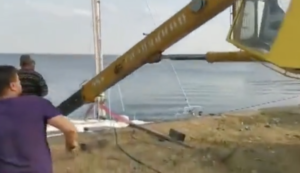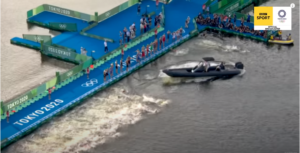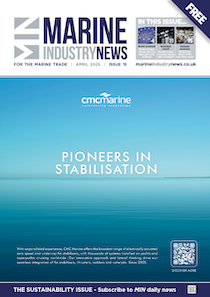Is mussel poo the answer to microplastics?

Scientists at Plymouth Marine Laboratory have launched a series of in-situ trials of a unique microplastic clean-up method using mussels as filtration systems.
Earlier this year, with financial support from the Waitrose ‘Plan Plastic’ Fund, Plymouth Marine Laboratory (PML) began testing how effective mussels are at removing microplastics from seawater using a custom-designed flume tank. The experiments showed that a cluster of 300 mussels (5kg) could filter out over 250,000 microplastics per hour.
Also, at concentrations encountered in the marine environment, the plastics are unlikely to cause any harm to the mussels.
The experiments confirmed that blue mussels, not the kind commonly sold in supermarkets, readily filter microplastics out of the water column. Microplastics are then either rejected by the mussels within ‘pseudofaeces’ or ejected in their normal faecal matter. Additional experiments showed that, even when they contain high levels of buoyant plastic, these mussel faeces will rapidly sink out of the water. This means they can be collected for removal, thereby taking microplastics out of the system entirely.
PML’s computer modelling indicates that mussels sited near the mouths of rivers and estuaries could filter between 20-25% of small, waterborne microplastics. The factors are complex, with variables such as depth, currents, tides, temperatures and varying plastic supply, but the findings mean that a mussel-based clean-up system could potentially be rolled out at scale with significant positive effects.
To test the process further, a series of trials have now begun in the Plymouth Sound using clusters of mussels in large submersible ‘baskets’ with net-like receptacles which collect the faeces – and the microplastics – which can then be hauled in and removed from the seawater. Marine Industry News will keep you updated on the progress of these trials.
“Each year, an estimated eight million tonnes of plastic end up in the ocean – the equivalent to a full truckload dumped into the sea every minute,” says Professor Pennie Lindeque, head of science, marine ecology and biodiversity at PML. “Of course, prevention is better than cure but we are very encouraged to see that a nature-based solution using the humble mussel could have a key role to play in the war on microplastics, a growing threat to our world’s oceans.
“We’re hoping that we can put mussels in cages with nets underneath to collect the biodeposits near point sources, so maybe in marinas or near waste water treatment works, to really start having an impact and remove microplastics from the natural environment before they start dispersing and causing a problem for so many marine animals.”










